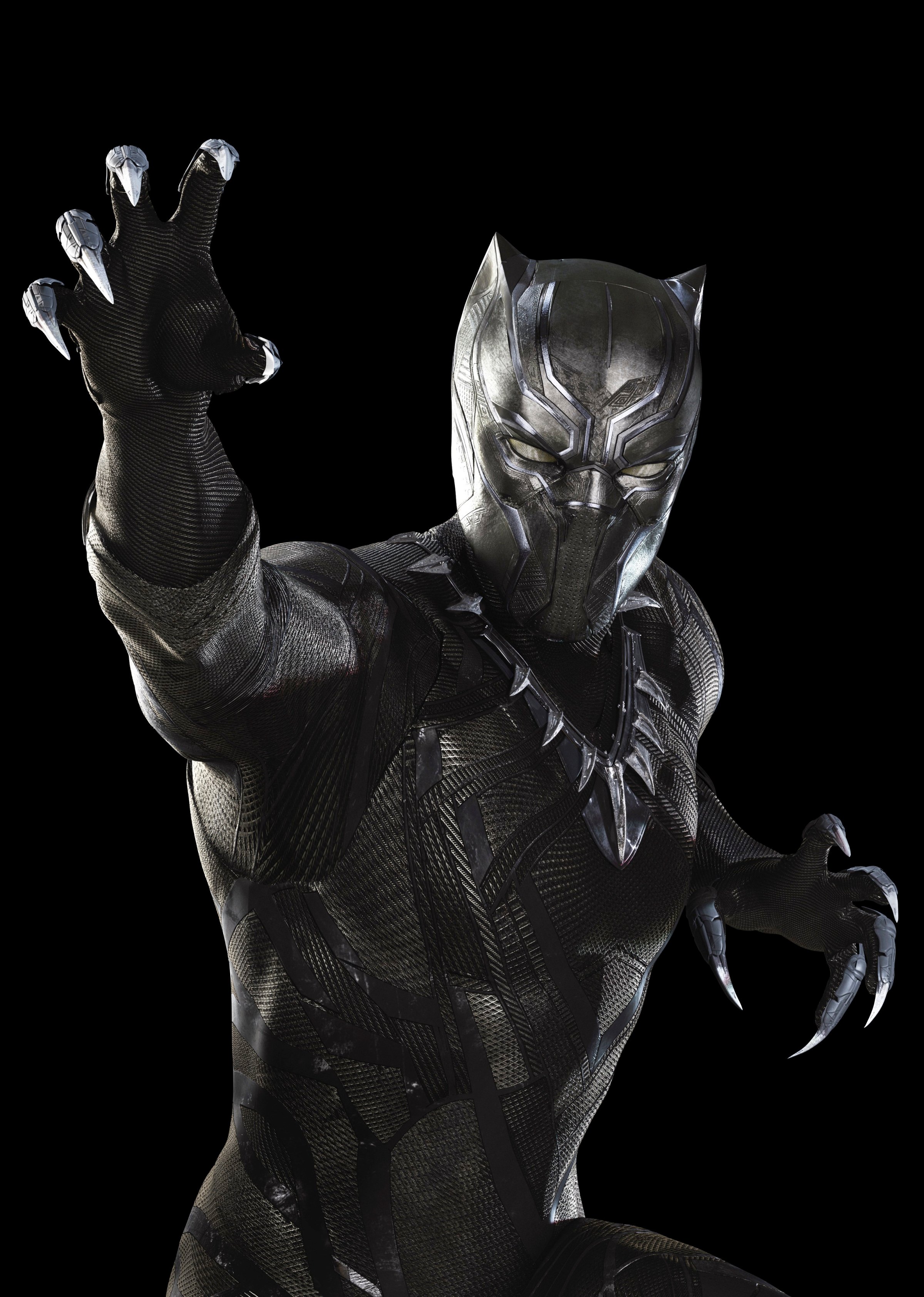
Captain America: Civil War, out May 6, is crawling with superheroes, from Iron Man to Spider-Man to Ant-Man. But there was one character that directing team Anthony and Joe Russo knew they had to get right. “We felt more pressure bringing Black Panther to screen than anyone else in the movie,” says Joe Russo.
And no wonder: Fans have been waiting for the first black superhero in comic book history to make his big screen debut since the character was introduced in 1966. A half-century later, Black Panther is finally stepping into the spotlight.
The character got a big profile boost just before Civil War hit theaters. Marvel Comics (which operates separately from Marvel Studios, though Disney owns both) recruited Ta-Nehisi Coates—National Book Award Winner, MacArthur genius grant recipient and a leading voice on issues of race in America—to write a new Black Panther comic series. His first issue, released in April, has already sold a record-breaking 300,000 copies. (Comic best-sellers usually top out at 200,000.) His popularity will only build with his pivotal role in the newest Marvel film. And in 2018, Black Panther will become the first black superhero to get his own Marvel Studios film. Directed by Creed filmmaker Ryan Coogler, it will beat Marvel rival DC Comics’ Cyborg to cinemas by two years.
It’s a historic moment. But more importantly for moviegoers, Black Panther has a very good chance of quickly becoming your favorite superhero. “Whether he’s the first or the last, it doesn’t matter as long as he’s as cool as he is,” says actor Boseman, who plays the hero in the film.
While comic books have long found champions among the alienated and the tormented, Hollywood offered deliverance mostly in the form of white male protagonists. Marvel built its film empire on Iron Man, Captain America and flaxen-haired Thor. (Though Blade, played by Wesley Snipes in a trio of 90s films, was a Marvel character, he pre-dated the superhero boom that began when Marvel Studios created the first Iron Man movie, the beginning of the Avengers mega-franchise.) Women and non-white men have had increasingly important roles in the films, but never starred in their own movies. With Black Panther, that’s finally changing. “People ask, ‘Why is diversity in our superheroes important?’” says Coates. “I’d turn that around and ask, ‘How does it reflect the real world to show just a bunch of white dudes?’”
Black Panther first appeared in a Fantastic Four comic 50 years ago. His creators, Marvel’s Jack Kirby and Stan Lee, had no idea a militant civil rights group had taken the same name just a year before. Kirby and Lee had debated using “Coal Tiger,” but decided “Black Panther” sounded cooler.
The man behind the Black Panther mask is T’Challa, a king who rules over the fictional African nation of Wakanda, the most advanced country in the Marvel universe; the isolationist nation is a fantasy of a prosperous, independent Africa unfettered by colonialism. Over the decades, T’Challa has earned a Ph.D. in physics from Oxford, battled the Ku Klux Klan, killed vampires in New Orleans, taught school in Harlem and even married X-Men character Storm. “Comic books have been pretty good when it comes to diversity,” says Coates. “Growing up, there was really nowhere else to go in the pop culture landscape to see black folks with the kind of power black superheroes had.”
Still, the most prominent heroes have generally been white and male. In the past five years, Marvel Comics has made a concerted effort to diversify their lineup, adding a Hispanic-African-American Spider-Man, a female Thor, a Korean Hulk and a Muslim teenage girl named Ms. Marvel. To that end, Coates’ books call into question what came before. T’Challa traditionally travels with a scantily clad, all-female guard, an aspect of the books Coates always found “kinda creepy.” (In one iteration they’re only 16 years old.) Turning the tables, Coates’ books are told in part from the perspective of T’Challa’s female guards, two of whom are in a relationship with one another.
“I did not imagine that I was writing strictly for a bunch of 15-year-old white dudes. You have to look at this all-female guard and ask, how would they feel about their situation?” says Coates. “It can’t be like, ‘Oh, hot lesbians.’ You want them to have ownership over their relationship and not just have it be performance for a male audience.”
Get a First Look at Black Panther in Captain America: Civil War
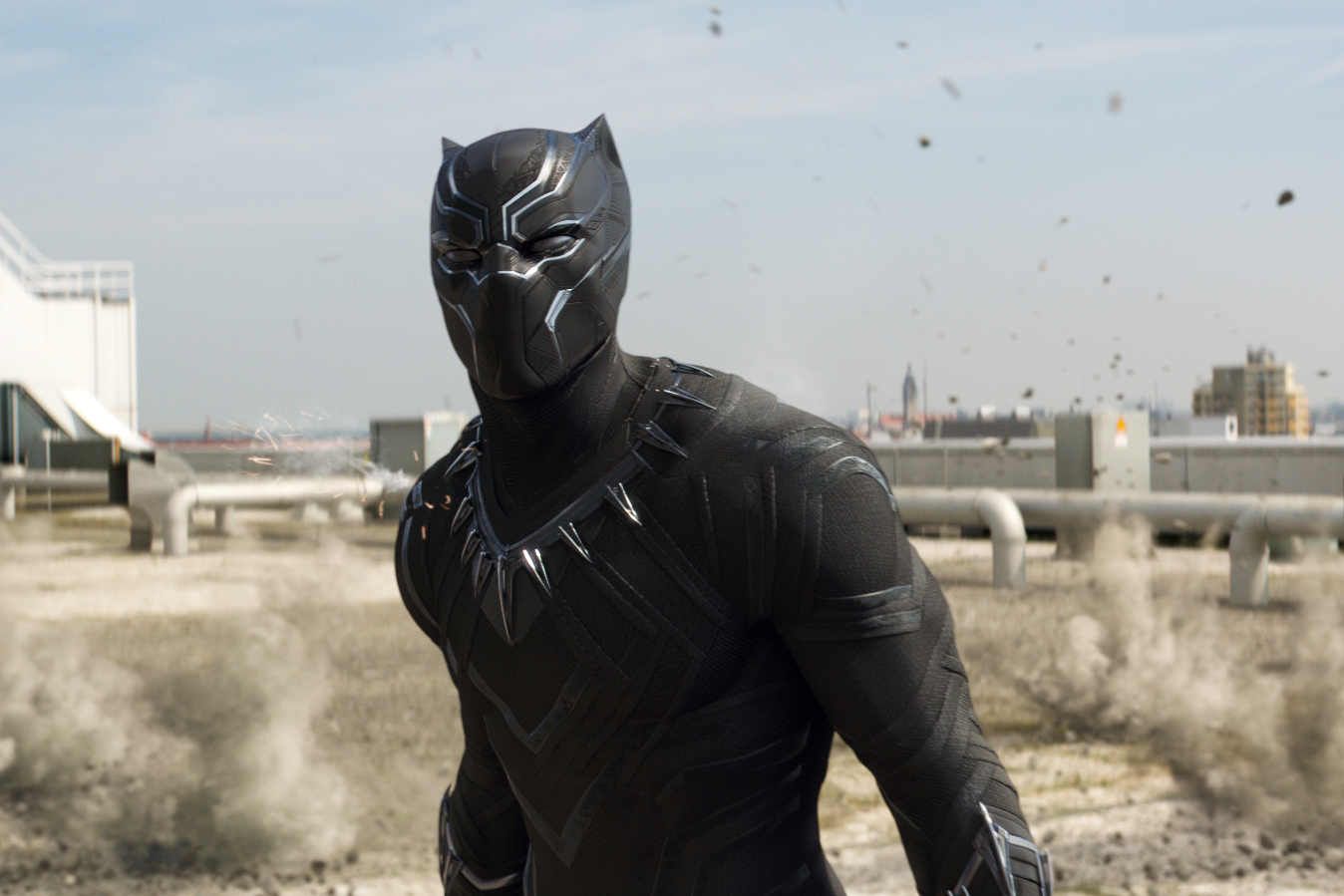
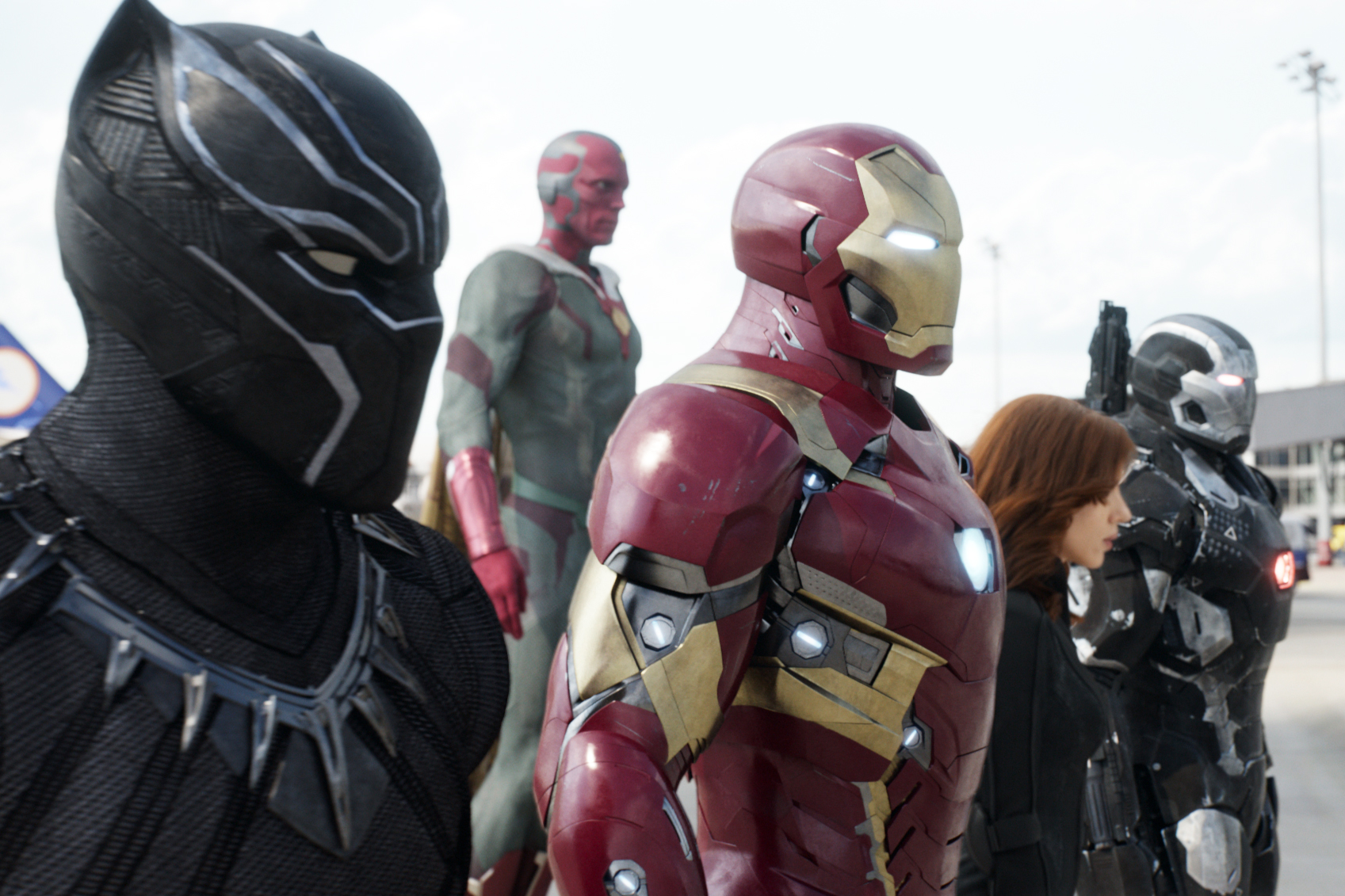
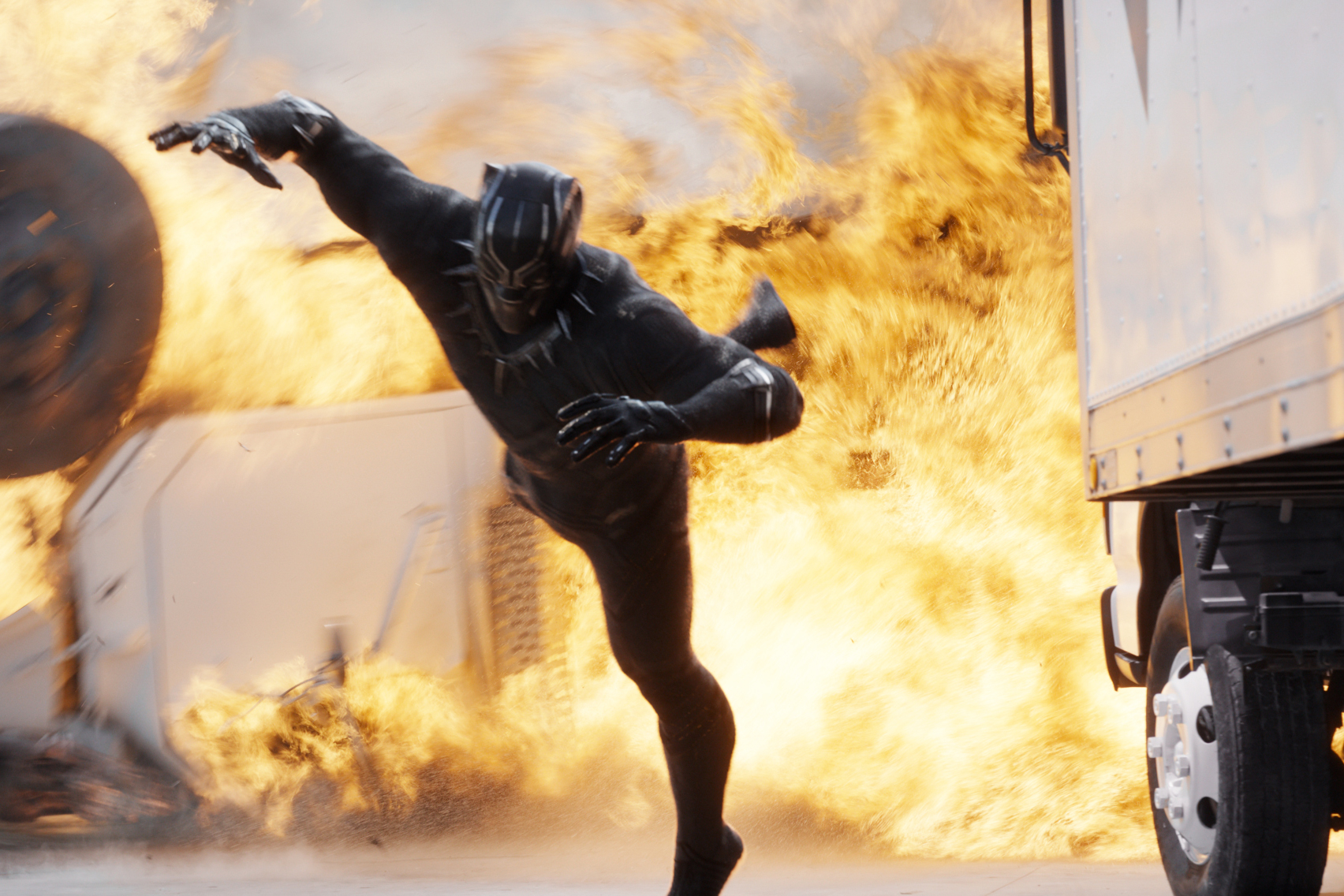
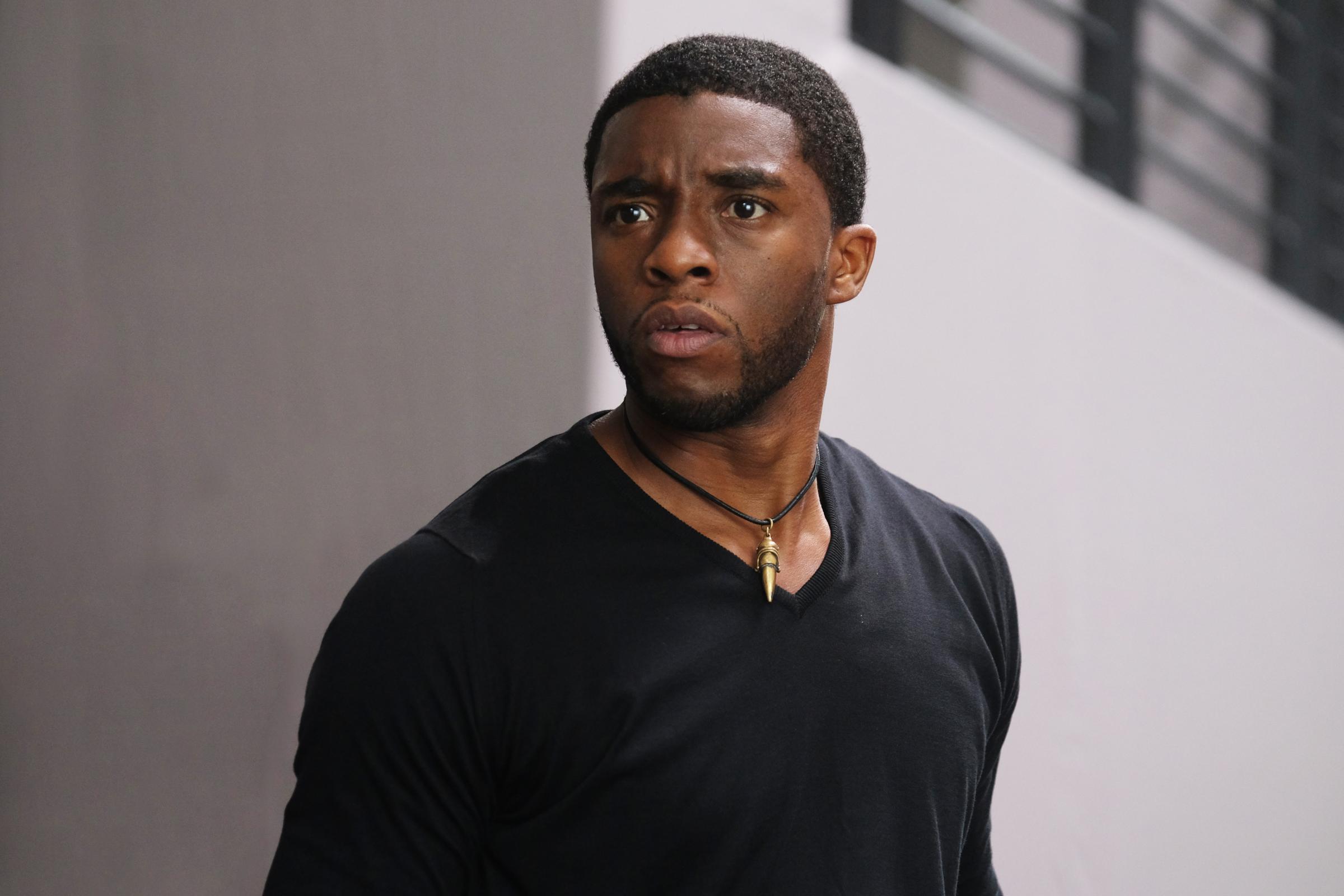
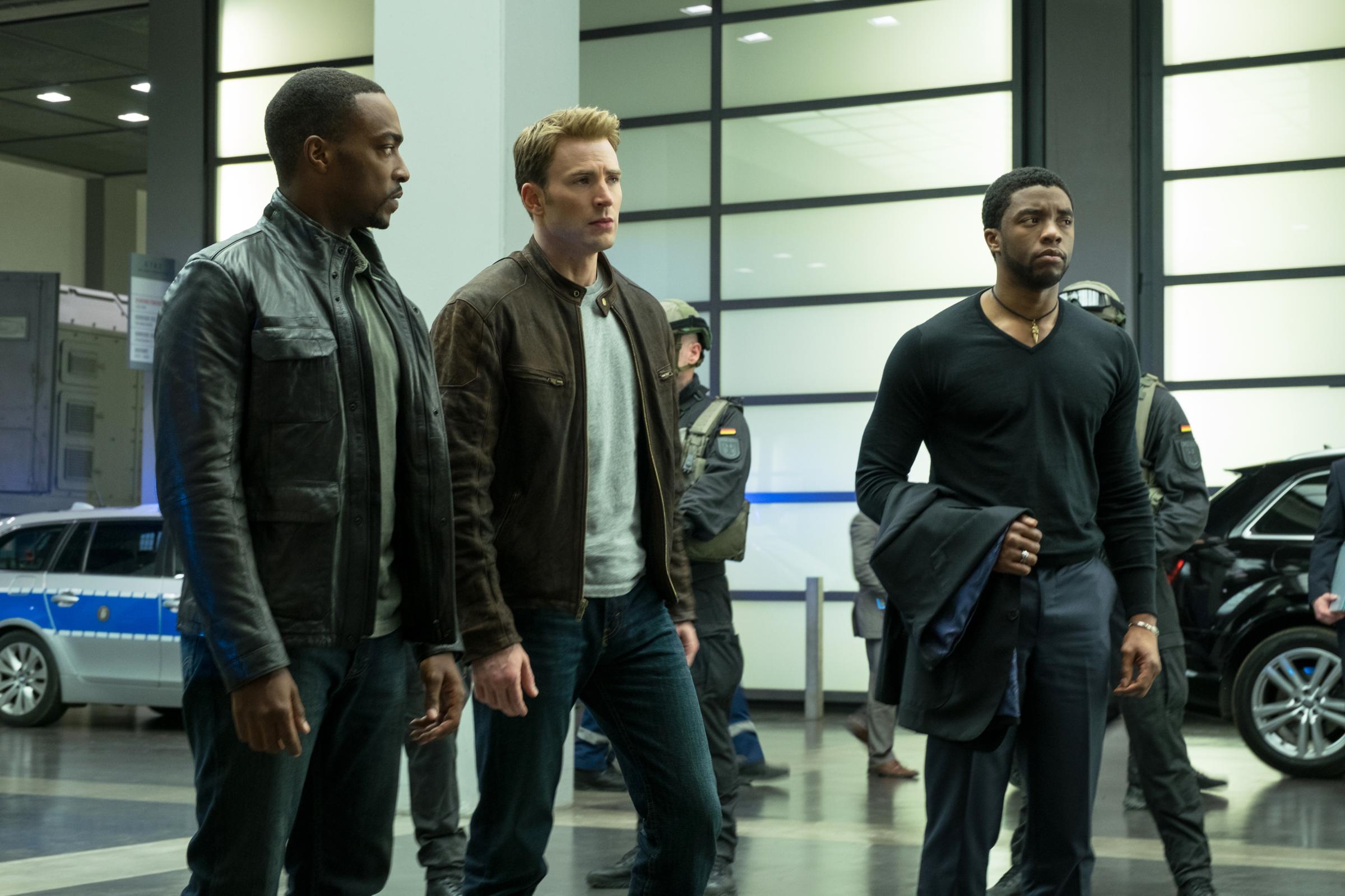
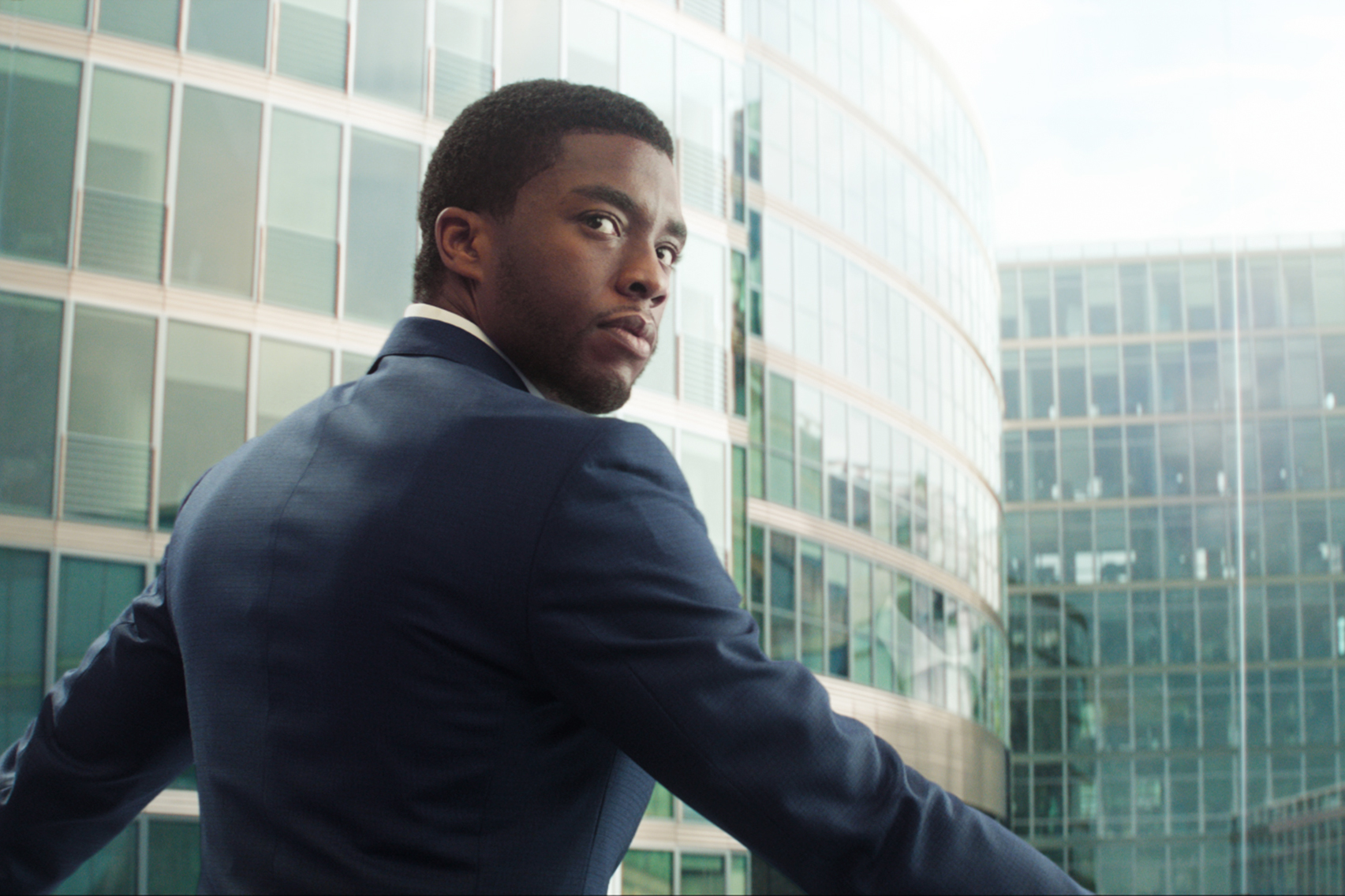
Hollywood has been slower to catch up: Don’t expect a superhero flick starring two African lesbians anytime soon. But after #OscarsSoWhite—a campaign that sprung up when the Academy yet again nominated only white actors for acting awards—actors and directors are more vigilant than ever about calling attention to the lack of recognition for minority artists. Both Boseman, who played James Brown in Get on Up, and Coogler, who won accolades for Fruitvale Station and Creed, are oft-cited examples.
To an entertainment giant like Disney, diversifying means appealing to a wider audience—and a bigger box office. “Hollywood lags behind other industries, and it’s incumbent upon us to push it forward. If we want to call these movies ‘mass appeal,’ then you have to create films with diversity in order to get that wide audience,” says Anthony Russo.
“Things are changing. We wouldn’t be having this conversation about my starring in this film if they weren’t,” says Boseman. He first read about Black Panther at Howard University where, coincidentally, he also met fellow student Coates. He’s been fascinated with Wakanda since, and worked with a diction coach on the set of Civil War to develop an accent that mixes cadences from the geographical region where Wakanda would exist. He practiced by maintaining the accent even when the cameras weren’t rolling.
In a movie packed with action, Captain America: Civil War pauses to tease Black Panther’s future and his upcoming film in a scene that the Russo brothers worked with Coogler to create.(You’ll know the scene when you see it.) For his part, Boseman says Black Panther will be fertile ground for Coogler who is “batting 1000 with Fruitvale and Creed.” With respect to the latter Rocky sequel, he took a storied genre—the sports movie—and made it emphatically new and personal. Now he’ll have the chance to do the same for superheroes.
“Even if he wasn’t a superhero, he would be interesting to me—as an African king and warrior, ruling the most technologically advanced nation in the world,” says Boseman. “How often do you get to see that movie?”
More Must-Reads From TIME
- The 100 Most Influential People of 2024
- Coco Gauff Is Playing for Herself Now
- Scenes From Pro-Palestinian Encampments Across U.S. Universities
- 6 Compliments That Land Every Time
- If You're Dating Right Now , You're Brave: Column
- The AI That Could Heal a Divided Internet
- Fallout Is a Brilliant Model for the Future of Video Game Adaptations
- Want Weekly Recs on What to Watch, Read, and More? Sign Up for Worth Your Time
Write to Eliana Dockterman at eliana.dockterman@time.com